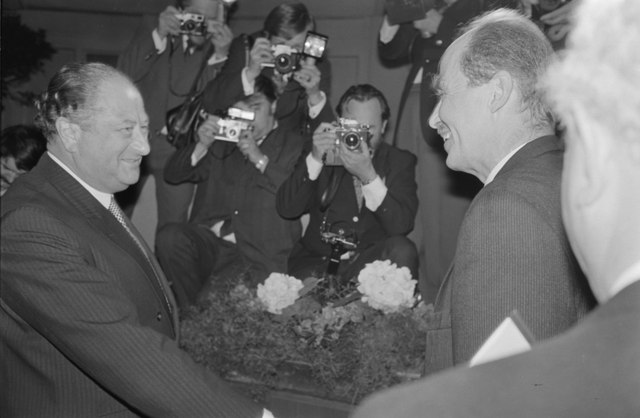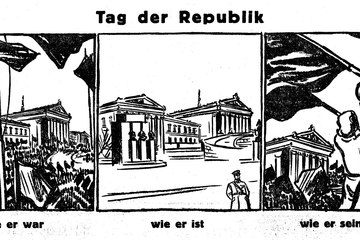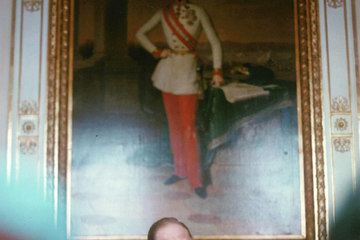‘The State that Nobody Wanted’ – Nobody?
The way the First Republic has been remembered by history was shaped by the defeat in war and the results of the negotiations in Saint-Germain, which were felt to be catastrophic and summed up by the bon mot (undocumented but nevertheless felt to be an insult) attributed to Georges Clemenceau, the French Prime Minister, ‘The rest is Austria.’ The titles of two books, Der Staat wider Willen (The Reluctant State) and Der Staat, den keiner wollte (The State that Nobody Wanted) were interpreted in an undifferentiated and ahistorical manner, becoming synonymous with Austria between 1918 and 1938. As a result there developed the image of a state which was moving towards its end from the moment it was formed and whose union with Germany was a matter of destiny and inevitable. The importance of the ‘site of memory’, the monument next to Parliament commemorating 12 November 1918, the day when German-Austria was proclaimed as a democratic republic by the Provisional National Assembly, was downplayed by the Social Democrats for the sake of keeping the peace in the grand coalition and putting positive emphasis on the Second Republic. Ending the war, implementing a democratic form of state, the hopes connected with these processes and the social, scientific and cultural achievements of the First Republic: all these were pushed into the background in the political discourse of the Second Republic.
Translation: Leigh Bailey








